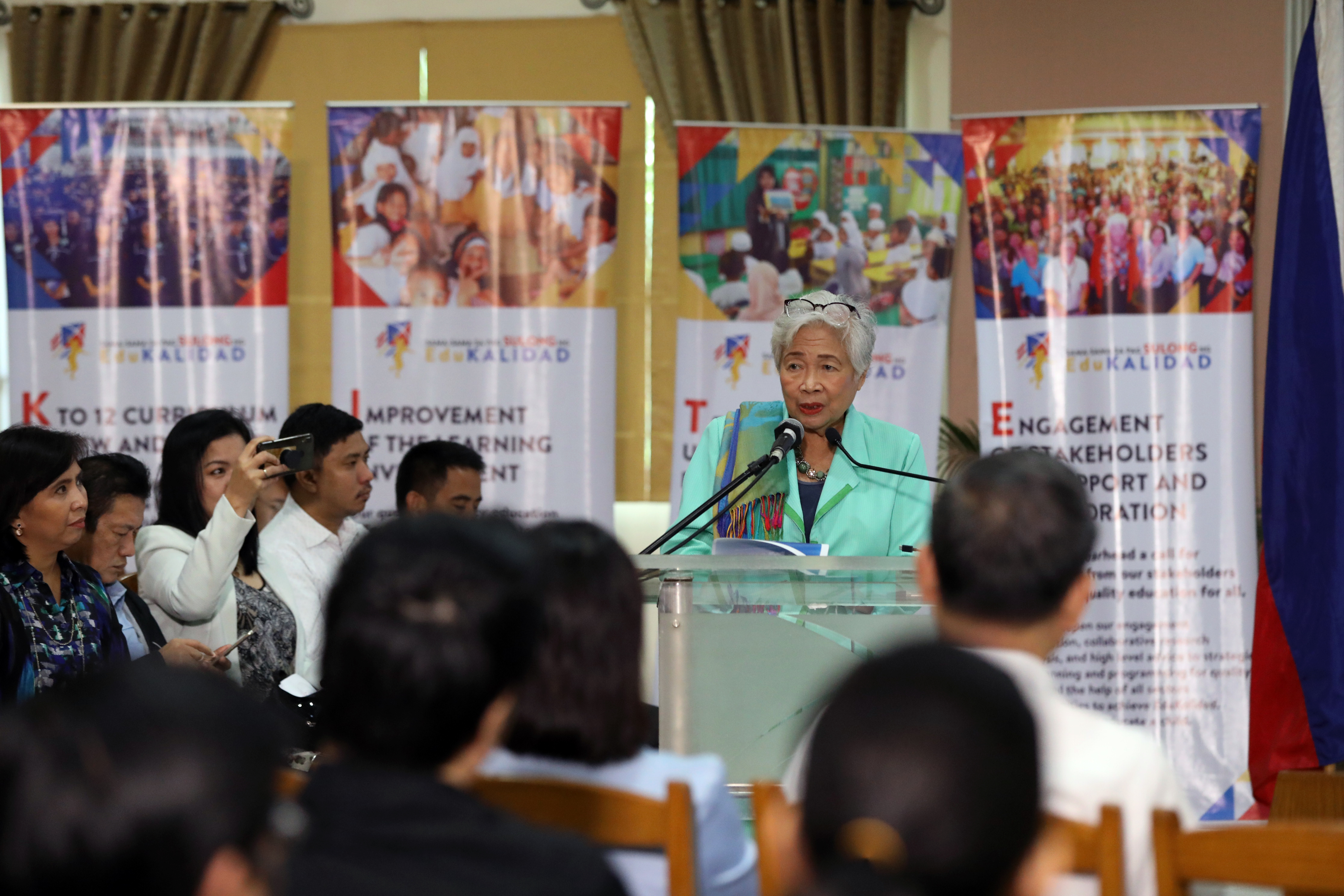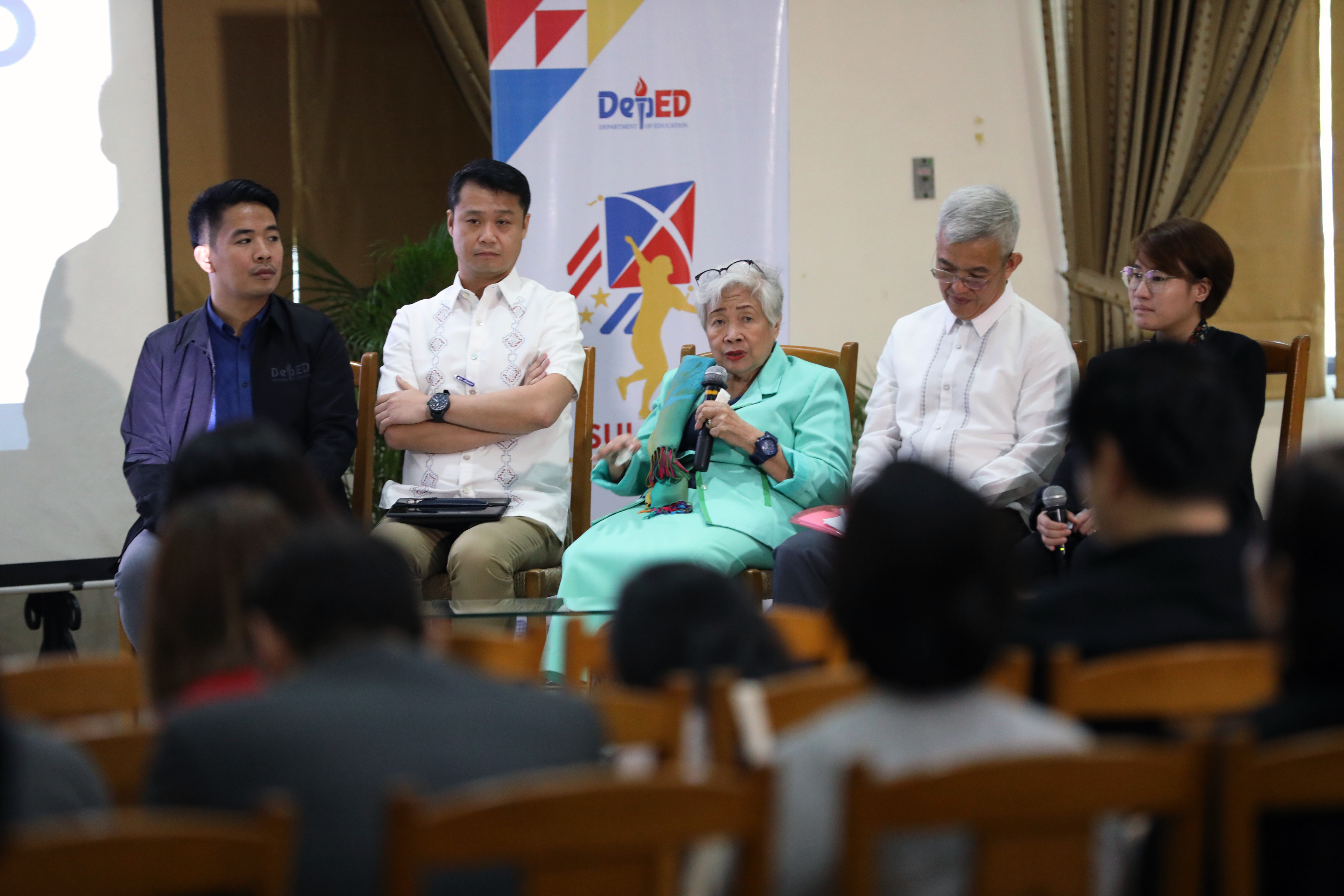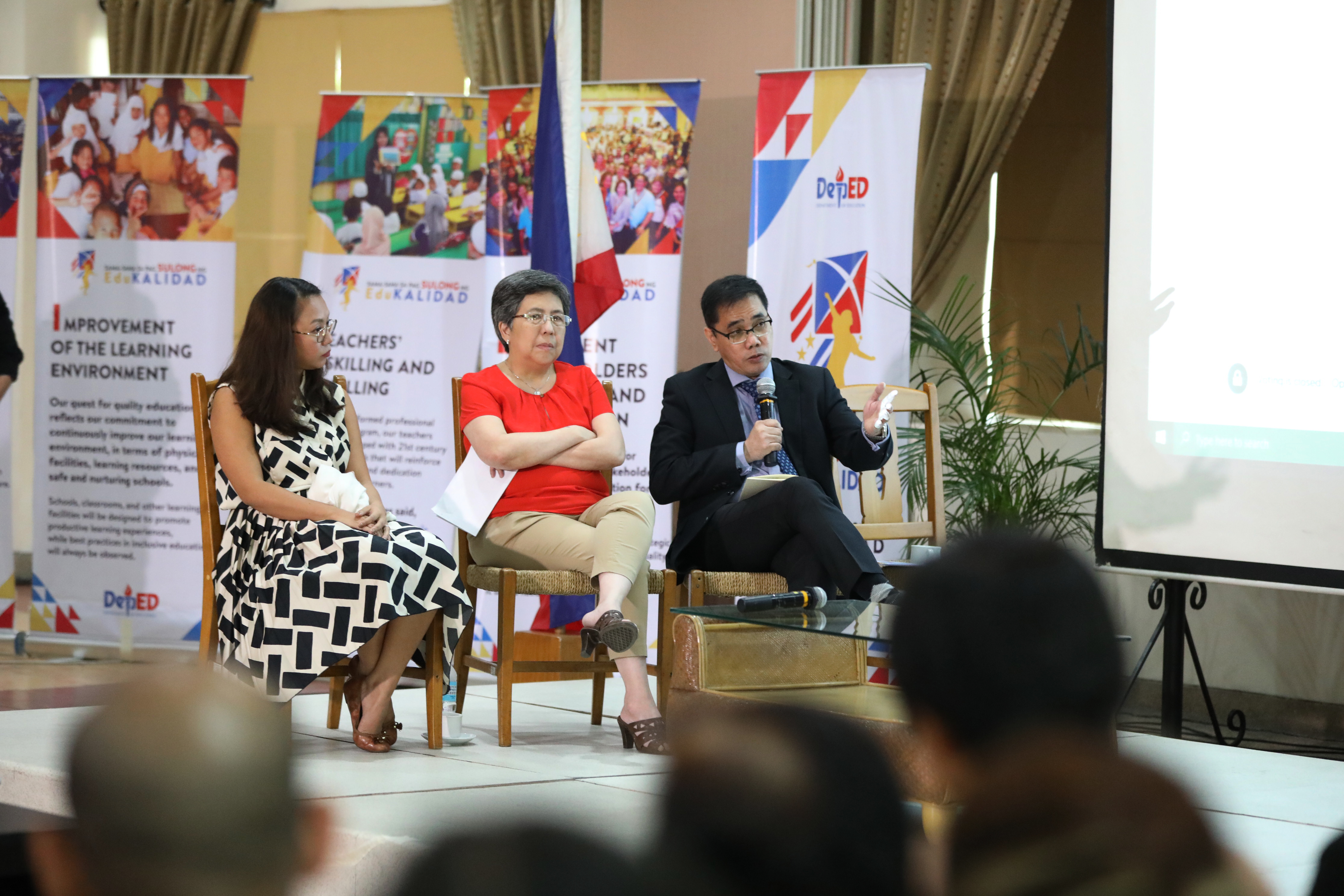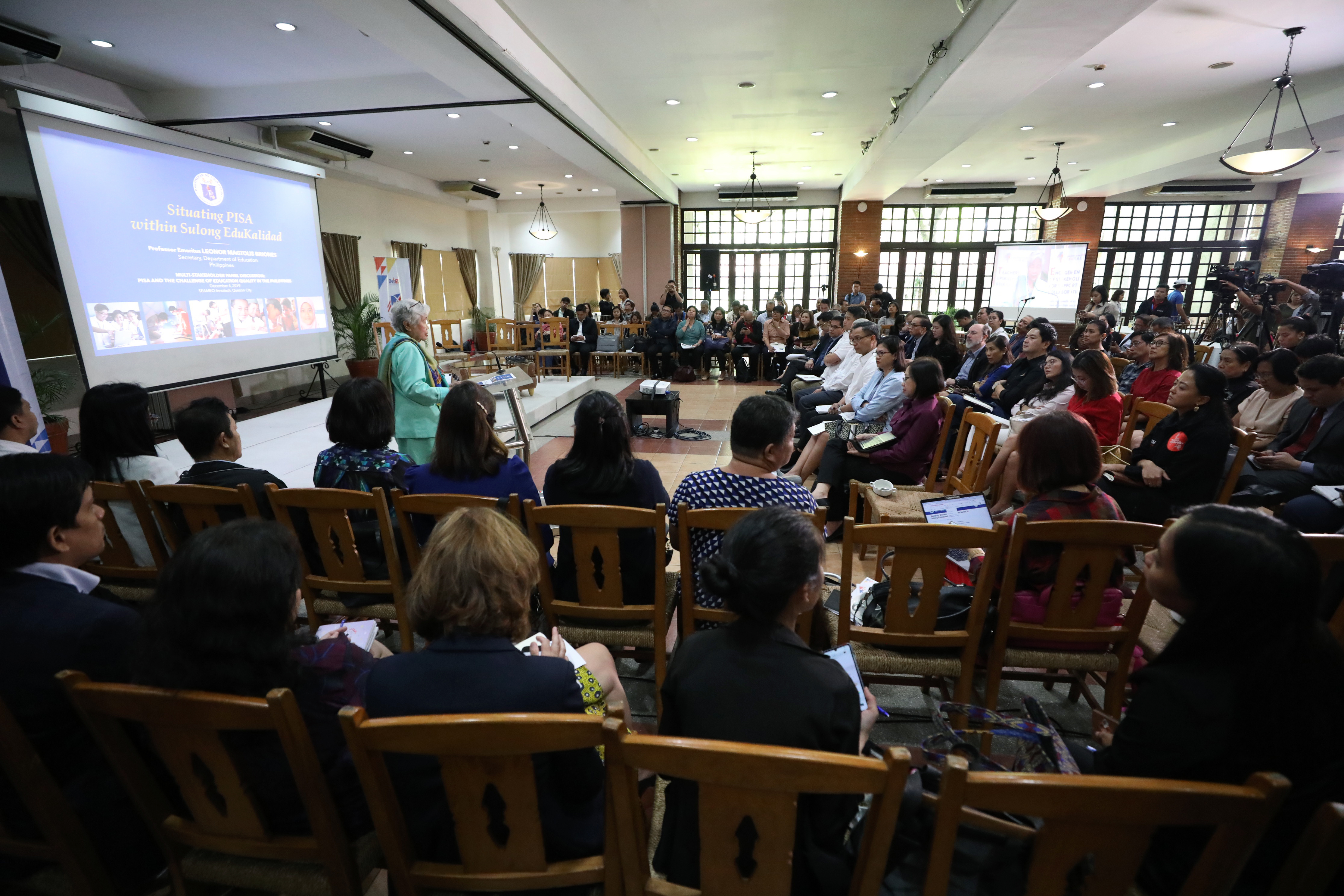QUEZON CITY, December 5, 2019 – Department of Education (DepEd) Secretary Leonor Magtolis Briones issued directives to address the challenge of quality in basic education during the Multi-Stakeholder Panel Discussion: PISA and the Challenge of Education Quality in the Philippines held at SEAMEO Innotech on December 4. For the full transcript of Sec. Briones’ speech at the forum, click here: https://www.deped.gov.ph/2019/12/04/situating-pisa-within-sulong-edukalidad/
The shift of focus from access to quality is part of the Department’s Quality Basic Education reform plan and a step towards globalizing the quality of Philippine basic education. The move got the green light after DepEd secured at the 43rd Cabinet Meeting the approval and support of President Rodrigo Roa Duterte and the Cabinet for the national effort to raise the quality of basic education.
Speaking before various partners and stakeholders, Briones presented the ongoing interventions of the Department that will improve the quality of learning in public schools. The interventions include curriculum review, transformation of the National Educators Academy of the Philippines (NEAP), proposal to extend the levels of teacher positions, and the Last Mile Schools program.
“We have to address the challenge of quality which will be difficult. We cannot do it in three years or even in six years. [We have to address the challenge of quality ] now that we have an idea of how we stand with the rest of the world;now that we are more familiar with our challenges [are] relative to the rest of world and to the rest of the region ,” Briones said.
The Secretary stressed that reading in English is the weakness of learners which affects their performance in Science and Math, as the medium of instruction and testing in later grades is English.
Sec. Briones instructed DepEd’s Curriculum and Instruction strand specifically the Bureau of Curriculum Development (BCD), and the Bureau of Education Assessment (BEA) to study further how the choice of language affects test performance of learners.
“Does the choice of language affect test performance? Reading in English is clearly a weakness of our learners, and this may also affect the performance of our learners in Science and Math as the language of instruction and testing in later grades is English,” Briones explained.
“Obviously, we need to strengthen our teaching and learning in English if we are to continue with English as our language of instruction and testing,” she added.
She also instructed the concerned offices to ensure that through the curriculum review the foundational competencies of reading and numeracy are clearly articulated, and are not sacrificed by congestion of ancillary competencies.
“I direct the Bureau of Education Assessment to be more proactive in interacting with our units and the field to ensure alignment of our national and system assessment with curricular goals and instructional and classroom assessment practices at the school and classroom levels,” the Secretary added.
Briones further emphasized that it is at the level of the school and the classroom that quality will ultimately depend.
“Addressing the challenge of quality will be a difficult and long-drawn process. But the more challenging [the] task for all of us is how to concretely translate Sulong EduKalidad at the school and classroom level,” she stated.
In closing, Briones urged all stakeholders to join DepEd in achieving its goal for quality basic education in the country.
“We have to work out our own solutions. We need all of you, all of us, we own education. Let us start working together. Let us start talking and let us start acting in two years time,” the Secretary concluded.
END






